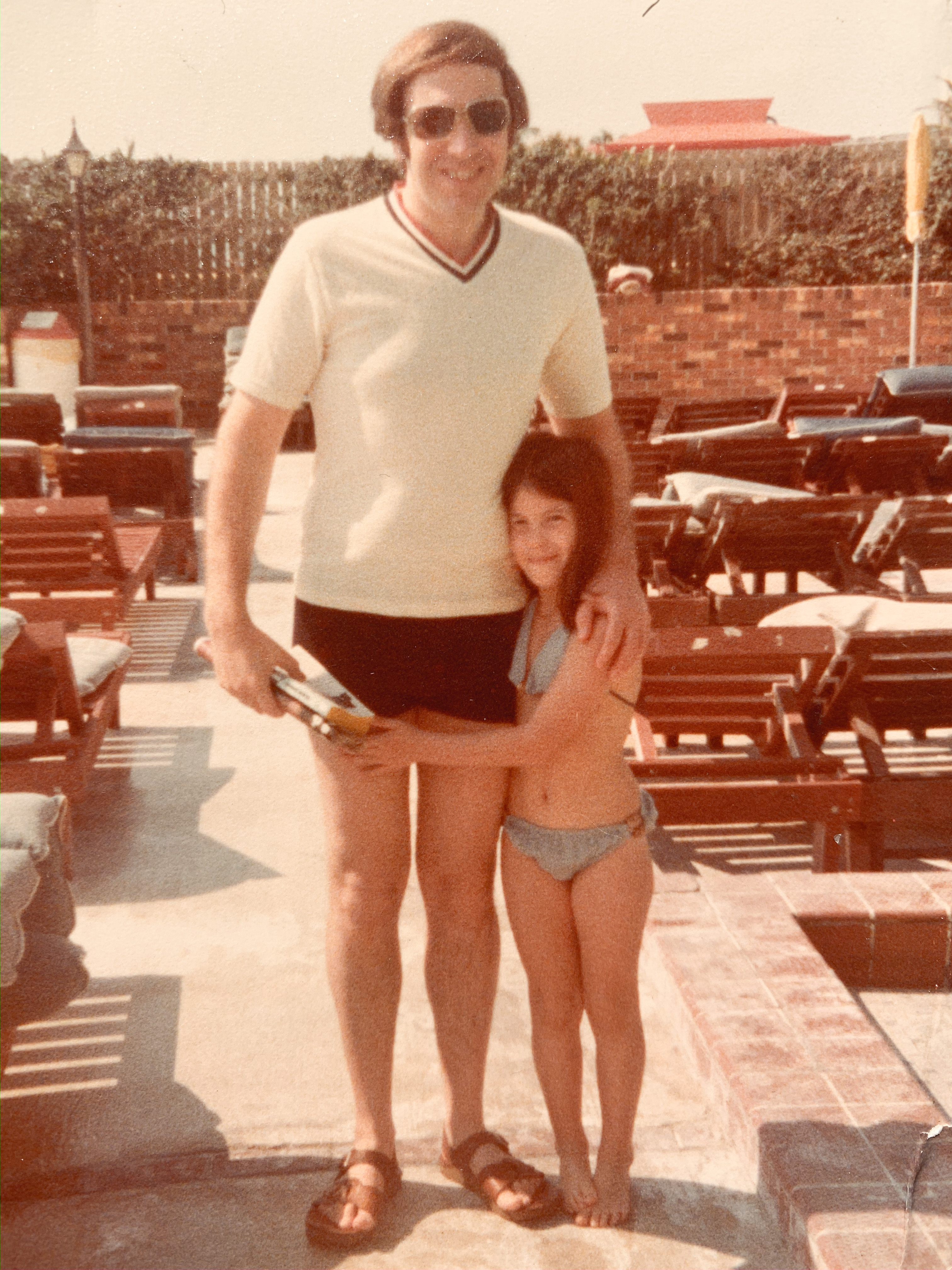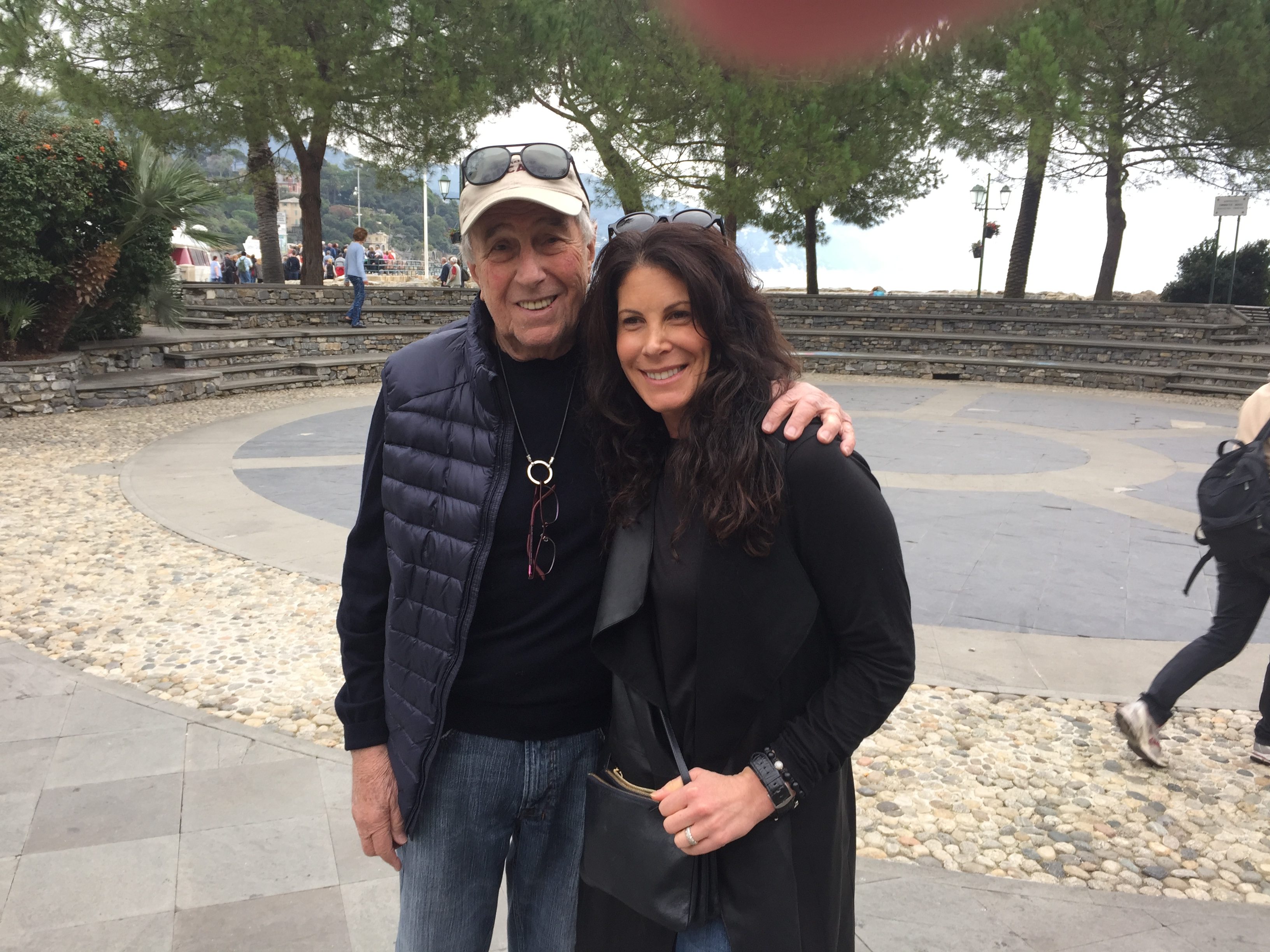
I spent many years in therapy trying to resolve my fear of losing a parent. What I never could have anticipated was losing my dad during a pandemic. Loss during the pandemic took away many of the rituals and routines that gave us comfort and control over our grief. And while each culture and religion have its own very specific ways of celebrating and grieving life, the universality is that we do these things as a way of sealing our connection to our loved ones.
Unlike the sudden death of my husband five years ago, I was given time to prepare for the death of my father. Time allowed me to surrender while bringing significant anxiety about the final months, weeks, and days of his life. As we know, cancer can be so unpredictable. Fortunately for my dad, the end was relatively fast.
Since my dad’s death last August, I have spent a significant amount of time replaying the last weeks of his life and our limited time together due to Covid. I replay our last words, the feeling of holding his hand as he began to transition and the vision of death washing over him.
While my dad’s death was inevitable and time prepared me for his loss, my real sadness comes from the Covid restrictions we experienced as a family. We are a tight-knit family and it doesn’t seem fair that my loving and supportive dad died alone at hospice. If you knew my dad, you would know his family was his everything.
As time has passed and I move through my grief, I realized that my focus needed to shift to my dad’s life and not the chaos of Covid and his death. There is nothing I can do about the past or the circumstances. So, while it is important to feel the sadness and grief, it is even more important to surrender and find the sweet spots of celebration.
Whether you have lost your father, or another loved one, Father’s Day can bring about many emotions. This has been a year of significant loss and unpredictability for many of us. Keeping yourself grounded and connected is essential in moving through grief. Here are some of the things that I have found helpful.
Tips for helping you move through grief:
- Connection, connection, and more connection. Staying close and connected to other loved ones is one of our greatest healers. If you think about it, when we are grieving, we are missing the connection we share. So safe connection, sharing stories and laughing is great medicine. Isolating will only intensify your grief.
- Self-care means different things for different people. But at the core of self-care is finding an activity that brings you joy and connectivity to yourself. Personally, I never feel worse when I am out in nature. Even amid my dad dying, I took the time to walk on the beach each day. Feeling the earth and being close to the ocean settled my nervous system, allowing me to manage my intense emotions.
- Don’t use alcohol, food, or drugs to manage the pain. While these things may help you feel better in the short term, in the long run, they will only intensify the feelings you are trying to avoid. Instead, reach out to a friend. If the urges persist, see if you can minimize the amount you are using so you don’t feel worse in the aftermath.
Loss and grief are never easy, but we certainly have a choice as to how we want to celebrate and honor our loved ones. I believe it is important to consider that we will eventually be the one who is leaving our loved ones behind. Ask yourself, how would you like to be remembered? For myself, it’s as a person who has touched the lives of others and brought joy to the world.


